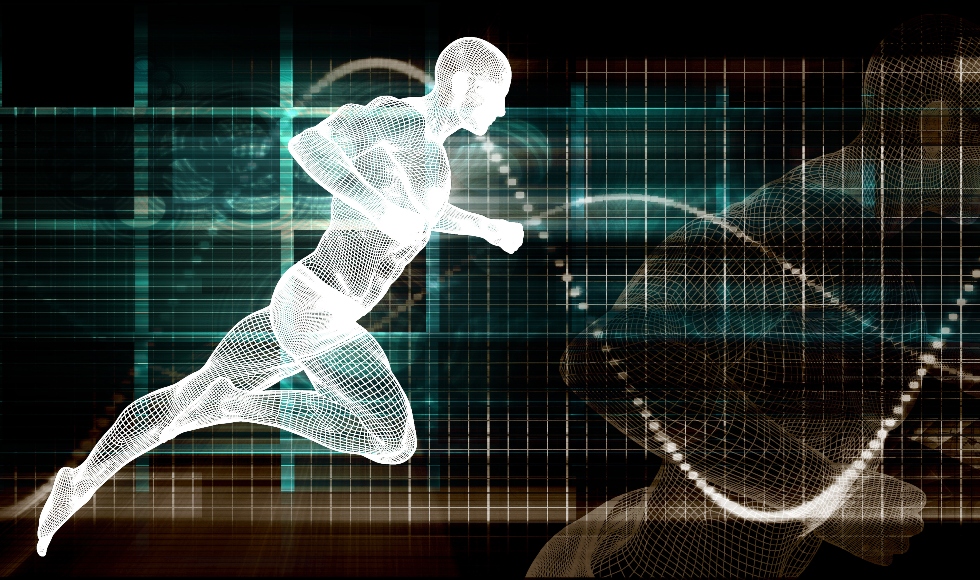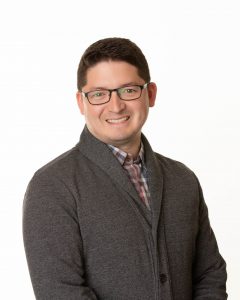Studying how we learn to move

Image by Shutterstock/kentoh
BY Sara Laux
September 27, 2019
Michael Carter is an assistant professor in the Department of Kinesiology, where he runs the Memory, Action and Cognition Lab. He did his undergraduate and master’s degrees at Brock University, then completed a PhD in human kinetics at the University of Ottawa, followed by a postdoctoral fellowship in the Centre for Neuroscience Studies at Queen’s University. Although he’s only been in Hamilton since 2017, he says he now considers it home.
Tell us a little about your research
What I’m interested in is how humans learn to control skilled actions – how we learn them, how we control them and the factors that might influence them.
 To be a little more specific, what I’m really interested in is the interplay between errors, and the role that they have in learning a skilled action. How do we go about assigning a source to an error, and how does that influence our decision making process for making changes on future attempts?
To be a little more specific, what I’m really interested in is the interplay between errors, and the role that they have in learning a skilled action. How do we go about assigning a source to an error, and how does that influence our decision making process for making changes on future attempts?
How do humans learn actions?
There are two types of learning. One is motor skill learning, which would be when you’re learning something brand new. You don’t really have experience with it – or, to use some jargon, you don’t have an existing controller for it.
The other kind is adaptation, which happens when you already have a skill. You’re not learning something new, you just have to adjust it in response to changes in your environment. A good example of that is walking on ice – you don’t have to relearn how to do it every winter, because you know how to adapt your gait.
So how do you study this?
There are two approaches people generally take – one will actually use sports skills in the lab, like throwing, golf putts or pitching. The drawback to that is that people have different levels of experience with sports skills, so the learning is different, and that could influence outcomes.
The approach that we tend to take is creating artificial tasks – we ideally want everyone to start off with no experience in our efforts to study the learning process.
To study adaptation, we’ll ask people to reach for different targets, and that’s straightforward because it’s regular reaching. But then we’ll throw in a “perturbation,” which means we introduce a systematic change in the environment that someone has to learn to overcome to successfully reach the different targets. Then we go back to regular reaching trials to measure “after-effects”, which indicate learning.
Some of the arguments that people will make against the tasks that I often use is that they’re very simple or contrived. But the assumption we operate on is that we’re trying to study the learning process itself, and we’re trying to study it in a very controlled way.
What role does coaching and feedback play in learning skills?
Most of the research that I’ve done in motor learning has been looking at choice behaviour of the learner – basically having the learner become more active in their learning environment, and see what sorts of decisions they’re making.
Let’s say you want to learn to play tennis. The first thing you’re probably going to do is hire a coach, or take lessons, and they’re more or less going to dictate every single thing that you should do. But what happens when we relinquish some of that control to the learner?
We know feedback is really important for learning – but what happens when the learner gets to choose when they receive feedback? Well, work that we’ve done has shown that when people have choice over when they get feedback, they learn skills better than people who are denied this same choice opportunity.
We still can’t agree why this happens, but I think we are getting closer to understanding why. Where this work really needs to go is determining whether this is actually an effective form of practice in more real-world situations. You can’t dismiss the years of domain-specific knowledge that a coach has – and to my knowledge, no one has done this yet.
Where do you see your research heading in the future?
One big change we have already implemented in our research is the adoption of open science practices in an effort to promote reproducibility and replicability of our findings. This includes pre-registration of our experiments through services such as AsPredicted (https://aspredicted.org) or the Open Science Framework (https://osf.io), and we are hoping to submit the lab’s first registered report in the coming months. Along this line, I have developed an interest in looking at kinesiology through a metascience lens.
I would also like to build up an applied line of research at some point. It’s always nice to take these theory-driven types of research questions and see if they hold true in more applied situations.
Ideally, I’d like to start looking into motor learning and motor control in the context of Alzheimer’s disease. Alzheimer’s is a neurological disease that most people immediately associate with memory, or cognition, but my dad was diagnosed with early-onset Alzheimer’s, and I watched him slowly lose motor skills that were once “automatic” – such as tying his shoes.
While my current research program is primarily concerned with the how and why, ultimately, if we can understand these questions in healthy people, and really understand the processes that support sensorimotor learning, can we take some of those findings and apply them to stroke or Alzheimer’s or Parkinson’s disease? Could you improve the quality of rehab, or can you rehabilitate people more quickly?


